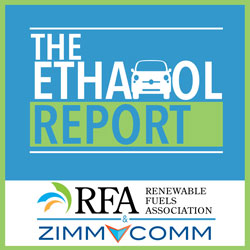 The House Energy & Commerce Subcommittee on Environment took a deep dive into the complex world of Renewable Identification Numbers (RINs) during a hearing on Wednesday.
The House Energy & Commerce Subcommittee on Environment took a deep dive into the complex world of Renewable Identification Numbers (RINs) during a hearing on Wednesday.
The committee, chaired by Rep. John Shimkus (R-IL), heard from a panel of independent witnesses to provide background on RINs and how the market for them works. The panel included:
Brent Yacobucci – Energy and Minerals Manager, Congressional Research Service
Sandra Dunphy – Director, Energy Compliance Services, Weaver and Tidwell, LLP
Paul Niznik – Senior Consultant, Argus Media Incorporated
Dr. Gabriel E. Lade – Assistant Professor of Economics, Iowa State University
Corey Lavinsky – Director of Global Biofuels, S&P Global Platts Analytics
Listen to the opening statements of the hearing and some questioning here:
RINs hearing Rep. Shimkus and members' statements
RINs hearing witness testimony and first questions
The Renewable Fuels Association (RFA) sent a letter today to the subcommittee leadership urging them to let RINs “do the job they were intended to do by stimulating increased ethanol production and blending.”
“RIN credits are the engine that drives the RFS. Not only are RINs used to demonstrate compliance with annual RFS blending obligations, but they also serve as a critical economic incentive to expand the production and use of renewable fuels,” RFA explained to the lawmakers. “Studies show that higher RIN prices facilitate deeper discounting of ethanol-blended fuels (such as E15 and E85) relative to gasoline, and that wider discounts lead to greater consumption of these blends. In turn, greater demand for E15 and E85 stimulates increased production of ethanol, which leads to increased RIN generation and larger supplies,” the letter noted.










